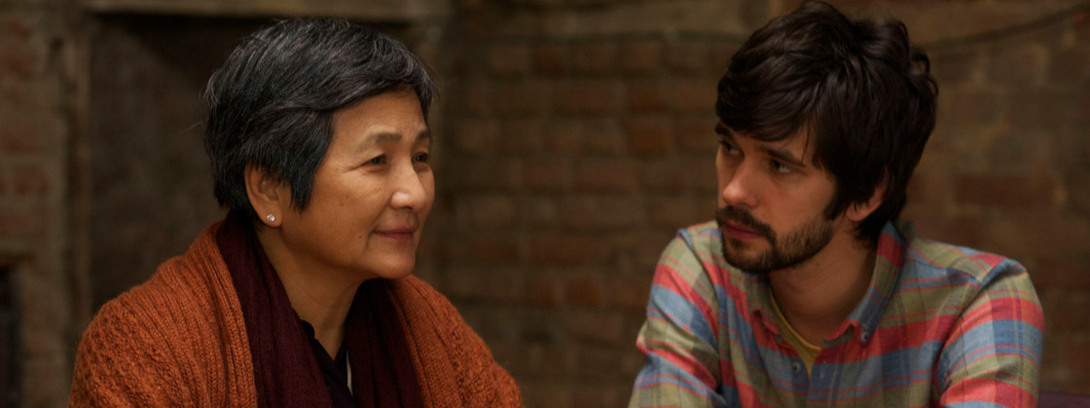Cheng Pei-pei and Ben Whishaw in Lilting.
Nate von Zumwalt
There is a discouraging paradox that exists in today’s climate of connectivity. While we are ostensibly more connected than ever, we are perhaps becoming more socially inept. Lilting, director Hong Khao’s wistful drama starring Ben Whishaw and Cheng Pei-pei, flips that contemporary notion on its head in a poignant study of communication and personal connection.
When a young London man named Kai dies unexpectedly, his boyfriend Richard (Whishaw) is compelled to establish a relationship with Kai’s only living family member, his Cambodian-Chinese mother Junn (Pei-pei), who speaks little English. Junn is overtly intractable and does little to veil her dislike for Richard, who hires a translator to facilitate dialogue in an attempt at healing. The pair slowly develops a rapport, fueled by their mutual yearning for the loss of a loved one.
Hong Khao’s direction is brilliantly stripped down and precise, allowing Whishaw’s and Pei-pei’s performances to shine. Below, he discusses creating an intimate environment on set and how his childhood in the UK informed the film’s narrative
You’ve talked in the past about how your relationship with language informed the premise for Lilting. Are the communication challenges we see in the film a direct reflection of those you experienced living in the UK?
Language and communication are the main premises for Lilting and it reverberates onto other themes. Some of the events in the film are a version of what I’ve experienced, filtered through a dramatic device. Inevitably there will be certain ideas and details that are from personal experiences, but equally it needs to be shaped and re-worked for it to work. One hopes that in the filtering process the personal nuances can remain, as I think they tend to resonate deeper.
The film relies heavily on brilliant performances from Ben Whishaw and Cheng Pei-pei and this very ethereal relationship that they cultivate. It’s such an elusive chemistry to capture. What was their working relationship like?
The elusiveness you’re talking about is in the premise of the set up. Their characters don’t know one another and are unable to communicate. That in itself presents this dilemma and dramatic dynamic. Their performances are incredible, really vulnerable. And there is strength there too. I find them very mesmerizing to watch.
On a similar note, how much did you deviate from script?
During rehearsal, the script changed here and there. There weren’t any big changes. It was in the editing process that the bigger changes happened. We lost some scenes, shortened others and rearranged them.
There is also a subtle brand of humor that permeates the film. Did you foresee that element in Lilting?
The humor was always there. In a story like this it needs the humor to help give us space to breath. What you get is that one helps to magnify the other, and the emotion resonates a bit more.
In making such a contemplative drama, how do you avoid overindulging in that intensity? Did you and the team find any respite from the heaviness?
It’s a difficult balance to get right. The shoot was tough for everybody because of the time and budget constraints. I don’t think the subject matter cast a dark shadows over us. If anything the nature of a low-budget set made it difficult, in that we can’t get away for one another too easily. Everyone was a real professional, and that also made it exciting—it galvanized us.




